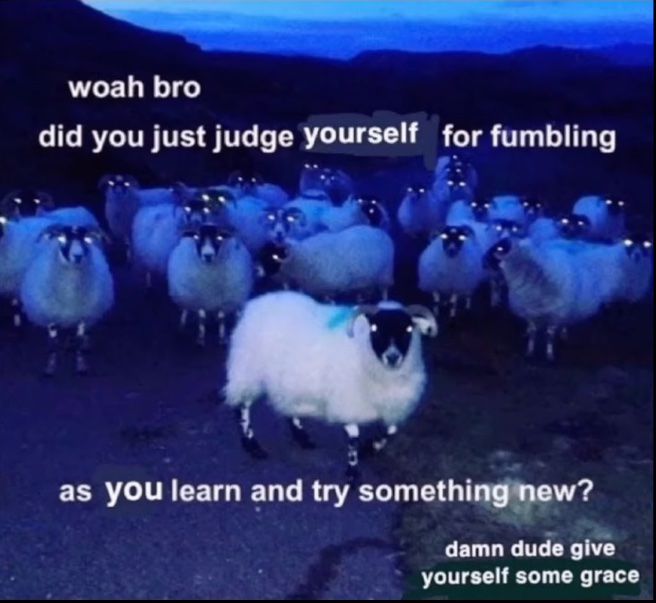
I’ve recently been deepening my meditation practice by sitting between 30-60 minutes a day, listening to a bunch of Dharma talks on the Waking Up app (currently going through Joseph Goldstein’s The Path of Insight), reading some relevant literature (current book is Thích Nhất Hạnh’s The Heart of the Buddha’s Teaching), and visiting the Ann Arbor Zen Buddhist Temple once a week (I’m here for a summer internship).
I mostly have positive experiences to report: increased focus, anxiety has mostly vanished (never thought I’d say this lol), I have an easier time dealing with tough emotions, and I have waaay more patience; both with myself as well as other people.
I’ve also had some interesting experiences: for a couple of weeks, I would get extremely hot during practice, dripping sweat by the time I was done.
Or that one time when I heard a sharp wooden crack, almost like a massive branch had just broken, but it was all my mind!
Or the time when I began hearing a deep thumping sound, almost like war drum, that completely disappeared when I opened my eyes.
I’ve also had some “bad” experiences: for example, I’ve become aware of a lot anger and frustration towards myself.
I’ve always put a lot of pressure on myself, so this is not entirely unexpected, but some of these thoughts can be quite jarring.
I also feel like I’ve lost the ability to multitask (or maybe it’s just made it obvious how scattered and unproductive my mind is when multitasking).
And of course, there have been some unpleasant physical sensations: I have a lot of tension in my neck and shoulders and it can be surprisingly painful during some sits.
Extended time in cross-legged sits has also made it very obvious I am not as flexible as I thought.
But perhaps the “roughest” experience of all has been when I’m aware of the impermanence of experience: all thoughts and emotions rise and then float away, and the feeling of self does this too. Sometimes, when I really relax into this awareness I find myself left feeling completely empty. For a couple seconds or so the feeling of self completely disappears. No “me”, just ripples in the mirror of consciousness. Everything is great while this lasts, but as soon as I get distracted by a thought, and the “I” notices what just happened, I feel a whole body contraction that feels a lot like panic. “What do you mean the “I” was gone?! Where did it go? How did you ever let that happen? You could’ve lost control!” It’s almost like slowly relaxing a cramping muscle until it’s completely stretched out, but then moving too fast and having it cramps again, but this time way more painfully.
Based on what I’ve learned about meditation, this is probably normal. It’s a habit built from 25 years of identifying with the feeling of self, and letting it go, relaxing that cramped muscle, will obviously take time. But the experience has been sufficiently disturbing that it’s made me question the practice as a whole. I’ve found myself questioning whether I even want the prize at the end of the game (i.e., awakening). What is this prize anyways? Will it turn me into a shapeless blob of equanimity? Immune to joy or suffering? An archetypical stone-faced monk? An escape from my problems? But, hold on, is that even what awakening is like at all? I’m not sure, but these questions are a bit scary.
Another source of doubt comes from Nietzsche’s slave morality.
In Beyond Good and Evil1, he describes it as a hierarchy of virtues formed by the “have-nots” in reaction to oppression by the “haves”.
Under slave morality one celebrates “those qualities which serve to make easier the existence of the suffering. [Such as] pity, the kind and helping hand, the warm heart, patience, industriousness, humility, [and] friendliness. […] for here these are the most useful qualities and virtually the only means of enduring the burden of existence.”
I like most of those qualities, and I practice meditation to ease my suffering, so what’s so bad about slave morality?
There are two pain points for me: first, is that slave morality comes from a place of deep resentment.
And, as a formerly resentful teenager, a part of me is scared I could regress back to that.
Second, the oppressed, as described by Nietzsche typically seek to convince themselves that the happiness of the oppressors is not genuine.
Personally, I’ve definitely found myself comparing my “spiritual” work to what other people are or aren’t doing.
“Sure, the jet set lifestyle seems nice, but I bet they know nothing about true happiness because they haven’t checked out the Jhanas like I have”
Growing older (and getting off most social media) has definitely tempered my comparison habits, but I want to be sure about my motivations for practice.
I would hope my motivation comes from a place of genuine interest in being more present both with myself and the people I love.
It should not be about escaping my reality or elevating myself to some kind of spiritual or moral high-ground.
I think many of my angsts are honestly based on ignorance, and I just need to learn more about meditation in general. So far, I’ve found Nick Cammarata’s writing to be extremely useful since he’s an advanced meditator that knows his way around the ultra-ambitious San Francisco tech crowd. Here are a some tweets I liked on the effects of meditation on personality, drive, and energy levels. I also want to better understand my relationship with ambition. On the one hand, I have a great opportunity to do some really cool stuff from a place of love. I get paid to build literal artificial intelligence with some really smart and hardworking people, and I’m going to take this opportunity with everything I have! On the other hand, I’m trying to get better at noticing when I’m doing things because it’s what my identity says I “should” do. Am I doing X because I want to fulfill the role of the “high-potential smart person” or because I am genuinely curiosity? I find that the latter builds up a lot of pressure and leaves very little margin for error before careening into psychological self-flagellation. A conversation with Sasha Chapin a couple months ago was very helpful in cluing me about the deep aversion I had for failure: I really did not want to fail in any way whatsoever, but that led me to be either being overly conservative, or very harsh with myself when I made mistakes.
In any case, I’ll continue reading, meditating, and learning and I’ll report back in a couple months. Thank you for reading.
